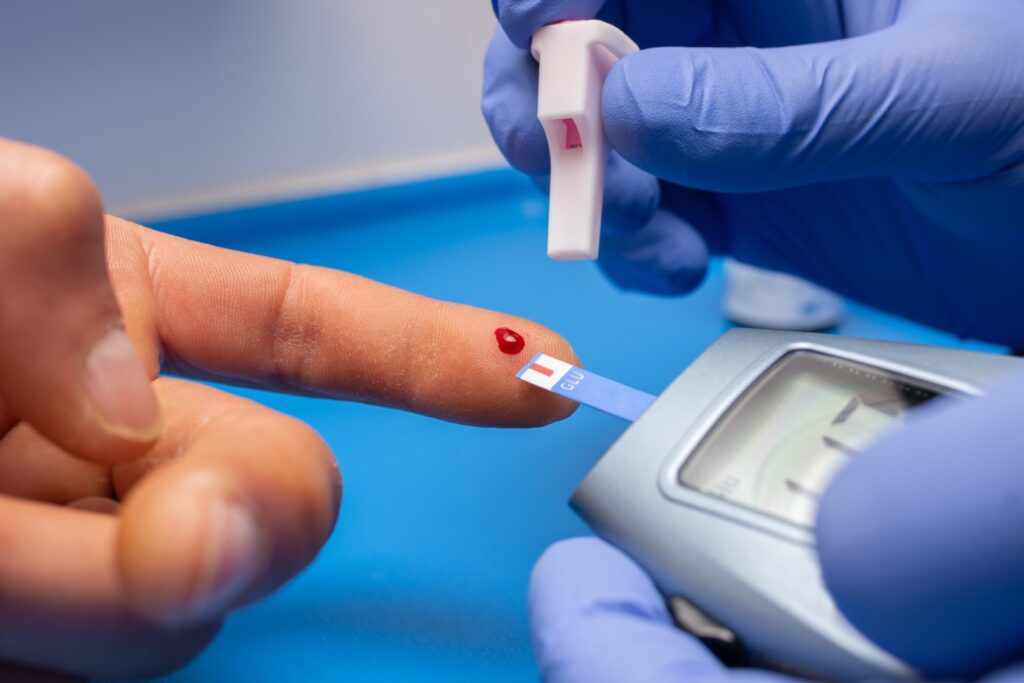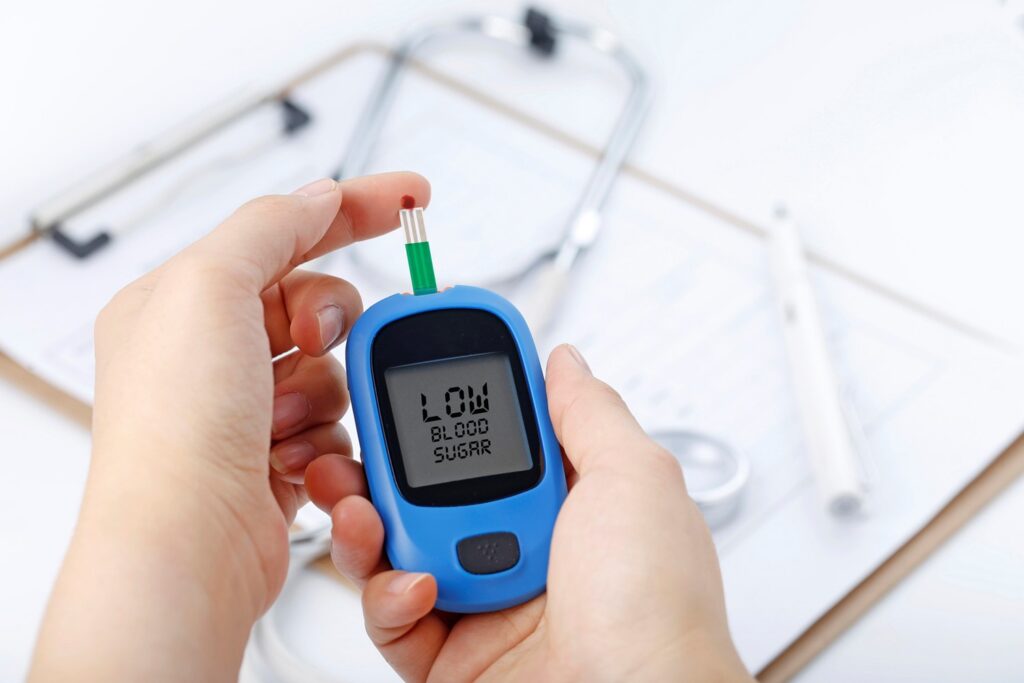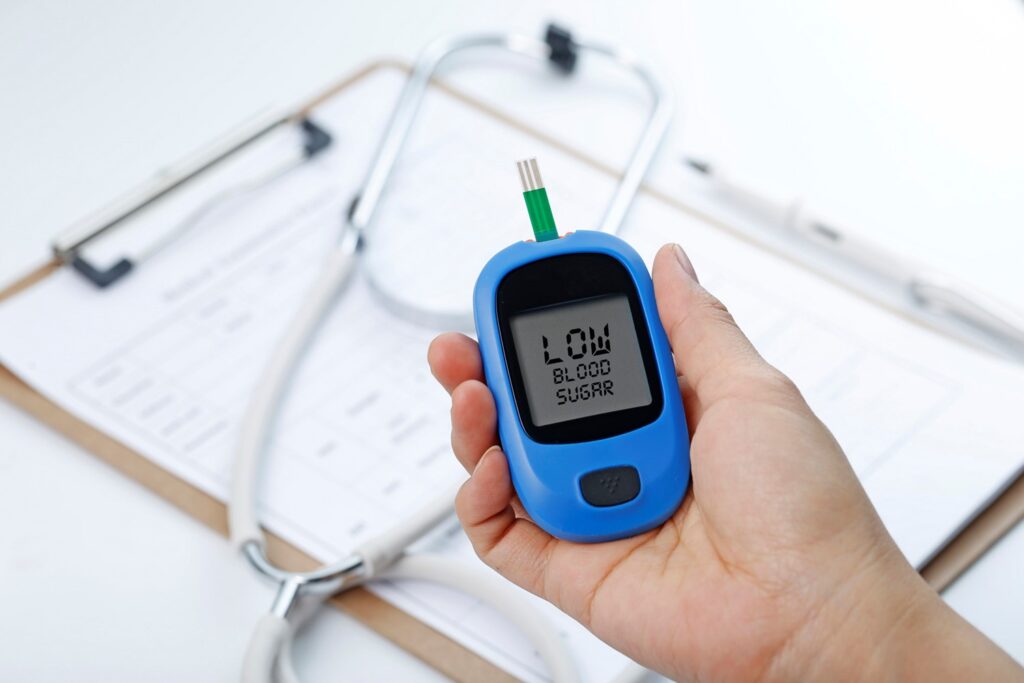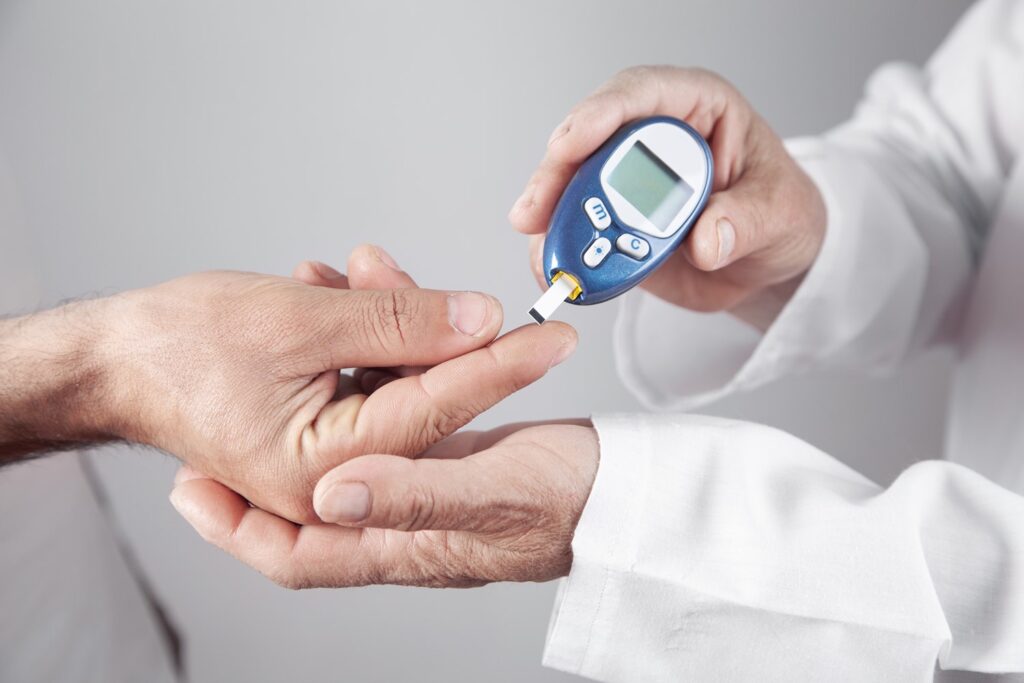What is Hypoglycemia and What Are the Signs?

Whether you have diabetes or not, it’s important to know about hypoglycemia. Hypoglycemia is a condition in which your blood sugar (glucose) drops below normal levels. This can lead to serious health problems if not treated quickly. In this blog, we’ll explore the causes, signs, and symptoms of hypoglycemia. What Causes Hypoglycemia? What Are the […]
Hypoglycemia Simplified: Understanding Low Blood Sugar

Hypoglycemia is when the sugar in our blood drops too low. It’s often linked to diabetes, but others can experience it too. Causes: Symptoms: Severe Symptoms: How to Manage: Prevention: Remember, if in doubt or experiencing severe symptoms, seek immediate medical attention for proper treatment.
Understanding Hypoglycemia: Causes, Symptoms, and Management

Hypoglycemia, often referred to as low blood sugar, is a condition that occurs when the glucose levels in your blood drop below normal levels. This can lead to a variety of symptoms and can have serious implications if not managed properly. Let’s dive into the causes, symptoms, and management strategies for hypoglycemia. Causes of Hypoglycemia: […]
The Impact of Hypoglycemia on Daily Life: Navigating Challenges and Precautions

Imagine feeling dizzy, shaky, and unable to concentrate while going about your daily activities. Hypoglycemia, a condition characterized by low blood sugar levels, can disrupt your life and pose significant challenges. Let’s explore the impact of hypoglycemia on daily life and discuss precautions to manage it effectively. Challenges of Hypoglycemia: Hypoglycemia can be a disruptive […]
Reversing Diabetes: Lifestyle Changes for Better Blood Sugar Control

Diabetes affects millions of people worldwide, but certain lifestyle changes can help achieve diabetes reversal or remission. Reversing diabetes involves making significant changes to diet, physical activity, and overall lifestyle. In this article, we will explore the concept of diabetes reversal, the potential benefits, and practical steps to improve blood sugar control and potentially achieve […]
Reversing Diabetes: Taking Control of Your Health

Diabetes is a chronic condition that can have a significant impact on the quality of life of those affected by it. Over 422 million people globally have diabetes, which is the primary cause of blindness, kidney failure, and lower limb amputation. Type 2 diabetes can often be reversed (medically known as remission of diabetes) by […]
Diabetic Neuropathy Exercises: A Comprehensive Guide to Managing Nerve Pain

Diabetic neuropathy is a type of nerve damage that affects people with diabetes. It can cause numbness, tingling, and pain in the hands and feet, and in severe cases, it can even lead to limb amputation. However, regular exercise can help manage nerve pain and improve mobility in people with diabetic neuropathy. Here’s a comprehensive […]
Diabetic Neuropathy: Know the Basics

The 4 main types of diabetic neuropathy: Symptoms: The most common symptoms of diabetic neuropathy include: Call your doctor if you notice the below symptoms: Causes: The exact cause is not clear; however, it is believed that uncontrolled blood sugar levels damages nerves and disrupts their ability to send the signals, resulting in diabetic neuropathy […]
Diabetic Neuropathy Diet – Managing Nerve Health through Nutrition

Living with diabetic neuropathy can be challenging, but with the right diet and lifestyle changes, you can help manage your symptoms and improve your overall quality of life. Diabetic neuropathy is a complication of diabetes that affects the nerves, causing numbness, pain, and other uncomfortable sensations. Here, we’ll explore how you can make dietary adjustments […]
Lifestyle Strategies for Coping with Diabetic Neuropathy

Diabetic neuropathy can have a significant impact on your daily life, but adopting certain lifestyle strategies can help you better manage your symptoms and improve your overall well-being. Here’s a closer look at some effective lifestyle adjustments to consider when dealing with diabetic neuropathy: 1. Regular Physical Activity: Engaging in regular physical activity can improve […]